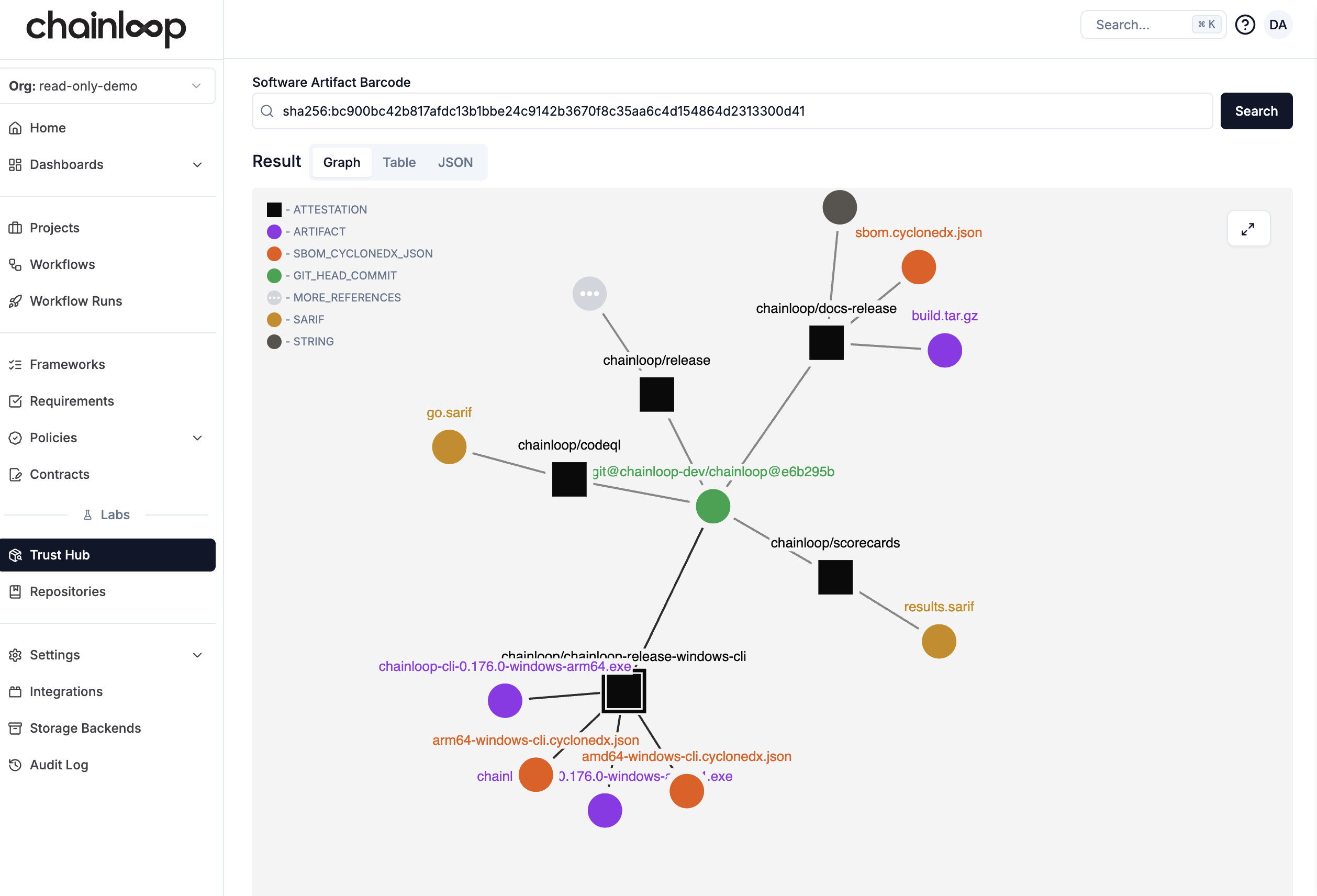The Challenge
Ensuring secure, consistent software delivery is no longer optional. But implementing this is non-trivial. Policies differ across teams, leading to inconsistencies in how vulnerabilities are reported and assessed. Manual enforcement is subjective and time-consuming, creating friction and delays for DevOps teams. Scaling manual governance across multiple teams and projects is also challenging and can lead to critical issues being missed.
The Chainloop Solution
Chainloop automates risk assessments and continuously validates evidence, creating a tamper-proof audit trail. It enables teams to codify rules and policies at every stage of the SDLC, and implement control gates that automatically block non-conforming builds or releases.
Chainloop continuously evaluates attestations during the build-release cycle against pre-defined policies, providing developers and operators with near-instant feedback on whether or not a specific release is acceptable.


